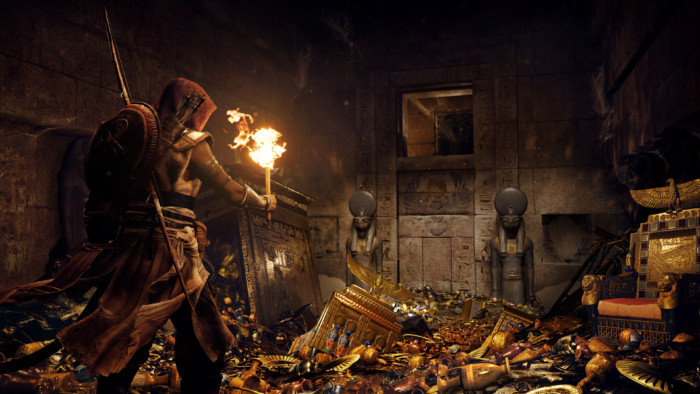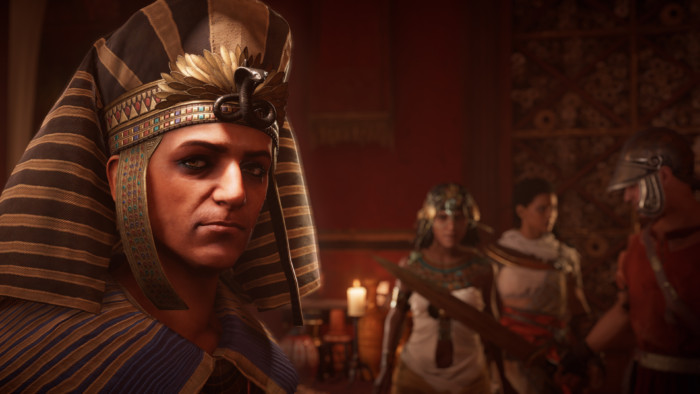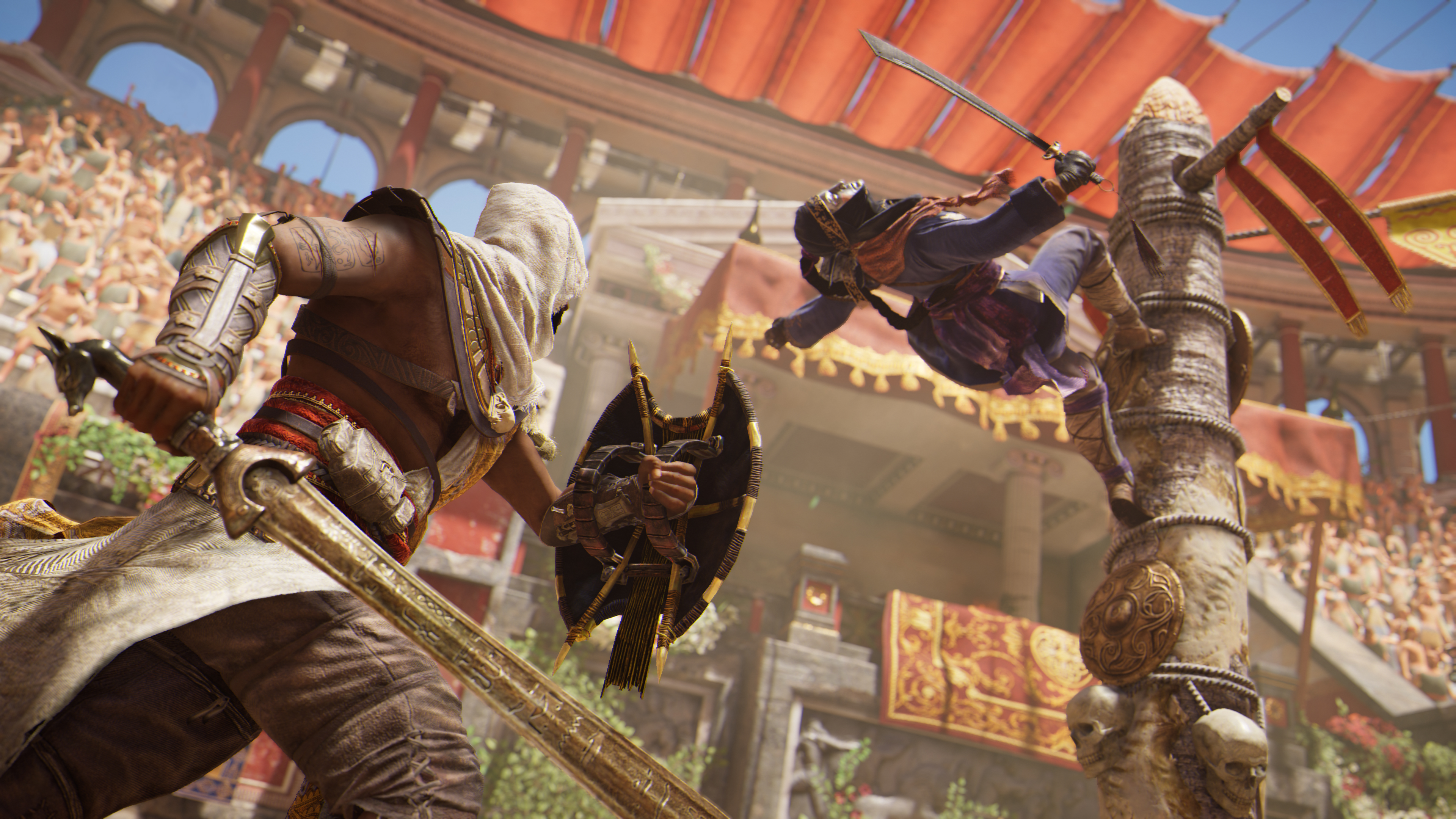Does Assassin’s Creed Origins Belong in a Museum?
Ubisoft have announced that Assassin’s Creed: Origins will introduce a new educational ‘Discovery Tour’ mode to the blockbuster series. This addition will allow players to explore ancient Egypt, free of combat in an interactive museum-style experience.
Led by real historians, players will be guided through the factual foundations of the game’s historical environments, observing the lives of ancient Egyptians during Cleopatra’s reign and exploring the likes of Alexandria and the pyramids of Giza.
As a historian who has witnessed the vast influence of historically-minded AAA games such as Assassin’s Creed first-hand, this seems like a timely inclusion. Students, educators and columnists have long debated the place of video games in education. Teachers continue to encounter students whose knowledge and interest in epochs past were sparked or inspired by games such as Assassin’s Creed. Educators at all levels find themselves simultaneously encouraged by the inspiring power of these games, and daunted by the task of correcting the factual inaccuracies and assumptions passed on to their students through such experiences.

I know I left my keys in here somewhere. Image Credit: Ubisoft, PressXtra
In either case, much like historical films, big-budget historical video games are becoming ever more important to our engagement with history. Educational games have been around for decades, but they have mostly remained on the fringe. In comparison, the Assassin’s Creed franchise is a leading force in gaming, and its appeal has always been founded upon the perceived authenticity of the environments and experiences it provides. Millions of players are both drawn to and inspired by the historical settings of each game, from Jerusalem during the Crusades to Victorian London.
The genius of Origins’ Discovery Tour is that it takes away nothing from the core experience. Rather than attempting to dull down the more fantastical elements of the game, early footage has already shown protagonist Bayek facing a giant snake of mythological proportions; this completely separate mode has the potential to enhance the player’s experience. It might also pave the way for greater appearances of video games as educational tools, providing teachers with a platform through which to communicate and engage with a wider range of students – something which creative director Jean Guesdon hopes to see as a result.
It’s a great sign that Ubisoft recognise the reach of their games and are listening to the voices of teachers and educators
Despite wrapping experiences up in convoluted sci-fi plots with Indiana Jones-style supernatural MacGuffins, Ubisoft are serious about history. Senior art designer Vincent Gaigneaux studies historical archives when designing the games, and professional historians and architects are employed as consultants to painstakingly build the series’ worlds. The games have always featured encyclopaedic databases of historical and cultural information, but these entries are no longer hidden away behind menus. Origins puts them on their own pedestal.
Even so the historical purview of Assassin’s Creed is a limited one, and the true test of its educational value will be educators’ and institutions’ willingness to use it effectively as a tool. Without this input, Origins’ Discovery Tour will likely remain no more than a gimmick. Operating as epochal fan service, each game mashes together the most famous names and events of a period into a highlights reel of historical fiction. I doubt that Origins’ new mode will create a marked shift in this model. We will continue with the familiar clumsy parkour, murderous romps, and hay-hiding for most of our time with the game.

Origins is firmly in the running for the annual strongest-headgear-in-a-video-game award. Image Creditt: Ubisoft, PressXtra
If nothing else, it’s a great sign that Ubisoft recognise the reach of their games and are listening to the voices of teachers and educators. And with global powerhouse franchise Call of Duty returning to its roots with WWII this year, historically-minded games are here to stay. Hopefully we’ll see more top developers making similar efforts in the future.

Comments (1)